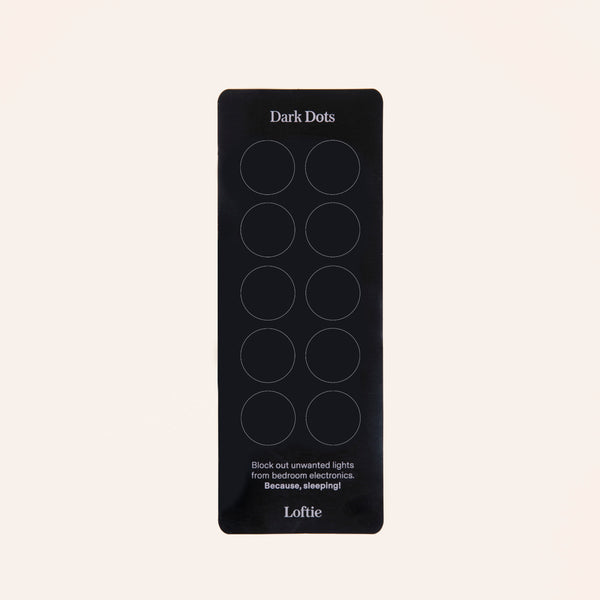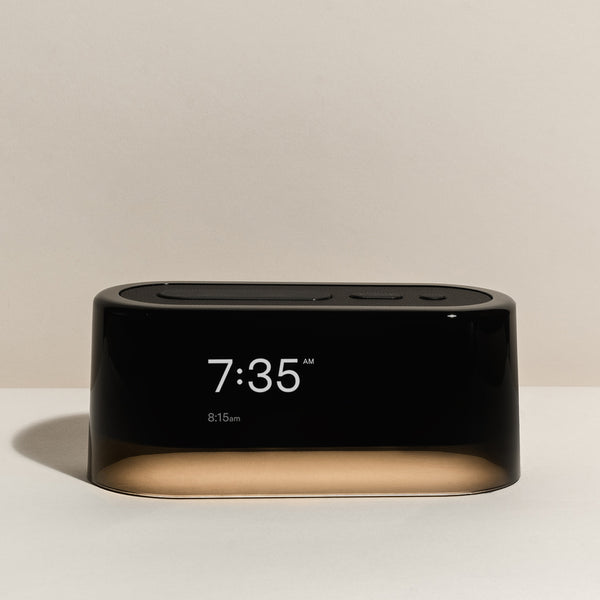So, you’re moving? Congrats! If you’re in a big city, it’s probably not your first, or even third, move and chances are you already have favorite pieces (a picture from your wedding day or that one-of-a-kind accent rug you found on vacation and you couldn’t live without) that instantly turn a new place into your home. All that’s left is to transform your bedroom into a snooze-inducing oasis.
Unfortunately, many people find that they can't sleep well in a new house. While sleeping in a new place can bring anxiety, it doesn’t have to. Your best sleep isn’t just about a comfy bed. That’s where we can help.
Here are our top tips on how to get to sleep easier in your new digs:
1. Stay Cool
Temperature plays a big part in healthy sleep. Bedroom temp affects how quickly you fall asleep, how long you stay asleep, and how much time you spend in the different sleep stages. But while you may like to stay warm and cozy under the covers, the experts recommend setting your bedroom’s thermostat somewhere between 60° and 68° if you want to get the most from your bedtime hours.
2. See No Evil, Hear No Evil
Kill the lights, cancel the noise. Both can disrupt your natural rest cycles by confusing your internal clock, making it hard to unwind and drift off. This isn’t just about missing out on sweet dreams, though: the World Health Organization (WHO) has found that sleep disturbance from noise has both immediate and long-term effects on mental and cardiovascular health.
Not sure how to block it all out? Start with blackout curtains, which should help with the majority of the light, and then add our Dark Dots to cover up pesky LED lights like your TV or internet router. As for sound, drift off with our ambient sounds that alter the soundscape around you for sweet, sound sleep. Inspired by the natural world around us, they help diffuse distracting noises (like your roommates talking or distant traffic) as you fall asleep.
3. Go Green
When you think of home decorating, NASA probably isn’t the first name that comes to mind. But maybe it should be. According to a study by NASA, plants in a bedroom offer out-of-this-world benefits because they’re natural air purifiers, removing toxins from enclosed spaces (they particularly like English Ivy to help with allergies and mold). Breathe better, sleep better. Plus they produce oxygen. Who doesn’t love oxygen?
4. Set The Mood
If you’re struggling with how to get to sleep fast, make sure you pay attention to your surroundings. Add some low lights, choose calm colors for your walls and linens, clear out clutter and try incorporating aromatherapy.
5. Make Your Bed
Your parents were onto something by making you make your bed every morning. The National Sleep Foundation confirmed through a poll that making your bed helps you sleep better at night and promotes a cleaner sleeping space. Whether or not you call your folks to tell them they were right is entirely up to you.
6. Back It Up
Add a bolster to your pillow pile, placing it under your knees at night. This will help improve sleep quality by relieving lower back pressure and helping blood flow, improving circulation. Plus it makes your bed look extra fancy during the day.
7. Go Offline
Getting ready to lay down? Start by laying down your phone! Better yet, keep it completely out of your bedroom and turn off all your tech at least one hour before hitting the sheets. Instead of your phone, wind down with a book or practice breathwork. You can invest in a portable speaker to play your favorite sound baths or soothing stories until you drift off to sleep. There are an assortment of products out there with built-in features to help you sleep better. We’re partial to ours, but that’s just us ;-)
8. Listen To Your Body
Our bodies have a circadian rhythm that naturally encourages a more restful and better nights’ sleep. Unfortunately, many people vary their schedules from day to day, weekday to weekend, which throws the whole thing out of whack. Keeping a consistent schedule for bedtime and pre-bedtime routine can train your mind and clue your body in when it’s time to rest. A study at University College London found, “On average, it takes more than 2 months before a new behavior becomes automatic — 66 days to be exact.” So sticking to it is just as important as developing your new habit.
9. Scent Matters
To fall asleep easier, consider adding aromatherapy into your nightly routine. Used for hundreds of years, essential oils ignite the amygdala - the part of the brain that processes memory, emotion and deep thinking. Having a scent like lavender, can promote a memory of great sleep and encourage your brain to wind down. Chamomile can signal the body to slow down and calm down. Our perfumed pick? Vitruvi’s Essential Oils and Stone Diffuser, which scents your home and looks beautiful doing it.
10. Use Water to Relax
Taking a nightly bath or warm shower is a great way to relax and wash away the troubles of the day. But in addition to that, a nice hot soak with actually lower your body’s core temperature, which helps signal your body to move into sleep mode. The Sleep Foundation shared, “A meta-analysis of 17 studies found that taking an evening shower or bath in water between 104 and 108.5 degrees Fahrenheit improves sleep quality. Those who bathe or shower one to two hours before bedtime also fall asleep faster.” A 2019 study echoed the same sentiments, finding a nightly bath helps people to fall asleep faster and sleep better.





















